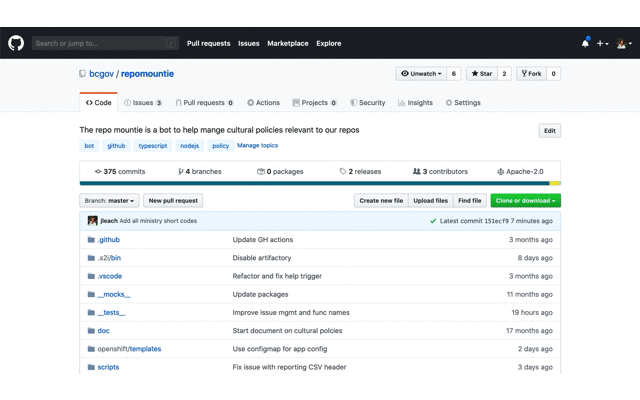This package contains functions that calculate the snow basin index (SBI) value for a particular basin or basins within British Columbia, Canada. Snow basin index values are used by the BC River Forecast Centre within their monthly/bimonthly Snow Bulletin to describe how much snow is present within a specific area relative to typical conditions.
The package contains several functions for retrieving snow basin index values for a particular basin within the province (details below).
This package also depends on two snow-specific packages to function:
-
bcsnowdata() - retrieves raw data from both automated and manual snow survey sites. This package also contains functions to determine
-
bcsnowstats() - This function calculates statistics for specific sites that are used within the SBI calculation (specifically, percentiles as well as normals for the period of interest). Note that the functions that calculate SBI values within the bcsnowsbi() package will automatically assign the appropriate normal time period based on the water year of the survey period you are looking for SBI values for (more detail in Usage section of this document).
bcsnowsbi() can be installed directly from github.
Snow basin indices (SBI) values are calculated for subbasins across British Columbia during the snow accumulation and melt season. They are a means of determining how much snow is within a basin relative to normal conditions for that basin for that time of year, a major determinant of flood risk in the lead up to the spring melt (freshet) season. SBI values are calculated as the mean snow water equivalent of all of the manual and automated snow measurements within a particular basin divided by the mean snow normal values for these same sites. Snow normals are calculated as the arithmetic mean of snow water equivalent values for a particular day across a defined 30-year period (more detail regarding how snow normal values are calculated can be found within bcsnowstats() package documentation).
There are several ways to return SBI values for a particular basin using bcsnowsbi().
Firstly, SBI values can be calculated and returned using the sbi_bybasin_function(). This allows the user to return SBI values for one, several, or all basins within BC.
# Example of how to use the sbi_bybasin_function()
# Retrieve SBI values for the Okanagan for Feb 1st, 2021
# No sites that should be removed from analysis ("exceptions"), or incorrect manual sites
library(bcsnowsbi)
SBI_test <- sbi_bybasin_function(date_sbi = "01-04-2022",
all_basins = "Yes", # What basin to analyze SBI values for. Can also be "Yes" to get all SBI values for all basins
exceptions = c(), # No sites to remove from analysis
incorrect_sites = c(), incorrect_data = c(), # No incorrect manual sites. Otherwise, can specify the site name and data that a manual site should be (in cases where it data was incorrectly entered).
save_csv = "No")
bcsnowsbi() uses bcsnowstats() in order to calculate statistics from raw data retrieved by bcsnowdata().
Most critically, bcsnowsbi() uses SWE normals calculated through bcsnowsbi(); these snow normals are values of mean SWE taken over a defined 30-year period for each calendar day (more detail about snow normal calculations is present within documentation for the bcsnowstats() package). This package will first define what this normal period should be depending on the year of the date that the user wishes to calculate SBI values for. For example, if SBI values for January 1st, 2021 are calculated, a normal period of 1990-2020 will be automatically assigned (normals are then calculated through the bcsnowstats() function).
In progress.
To report bugs/issues/feature requests, please file an issue.
If you would like to contribute to the package, please see our CONTRIBUTING guidelines.
Please note that this project is released with a Contributor Code of Conduct. By participating in this project you agree to abide by its terms.
This package uses snow-related data present on the BC Data Catalogue. This includes:
- Manual snow survey data (current year and archived data; also includes site locations)
- Automated snow weather data (current year and archived data; also includes site locations)
- Snow basin administrative areas
Copyright 2022 Province of British Columbia
This work is licensed under the Creative Commons Attribution 4.0 International License.
To view a copy of this license, visit http://creativecommons.org/licenses/by/4.0/.
This project was created using the bcgovr package.




